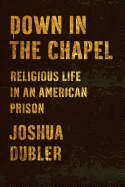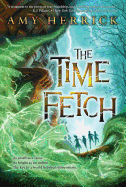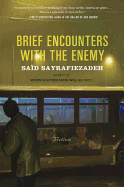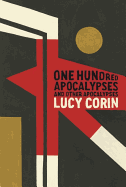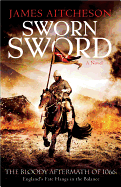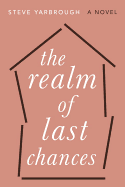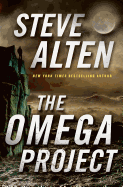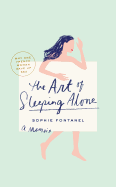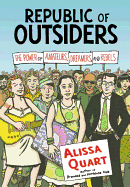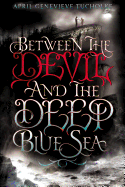Friday, August 16, 2013
It has been three years since Rebecca Skloot's The Immortal Life of Henrietta Lacks hit bookstore shelves and became an immediate "must-read" for so many of us. The bestselling book went on to garner multiple awards, critical praise and has been a reading group staple nationwide. 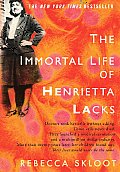 More importantly, Skloot's work trained long-delayed focus on the amazing legacy of an African-American tobacco sharecropper's daughter, who had tumor cells removed without her consent by doctors in a Baltimore hospital shortly before her death at the age of 31 from cervical cancer in 1951. Billions of these HeLa cells have since been used in thousands of studies, yielding insights into cell biology, vaccines, in vitro fertilization and cancer.
More importantly, Skloot's work trained long-delayed focus on the amazing legacy of an African-American tobacco sharecropper's daughter, who had tumor cells removed without her consent by doctors in a Baltimore hospital shortly before her death at the age of 31 from cervical cancer in 1951. Billions of these HeLa cells have since been used in thousands of studies, yielding insights into cell biology, vaccines, in vitro fertilization and cancer.
Skloot also explored the predicament of Lacks's descendants, who had never been consulted about research decisions nor received financial compensation from the massive industry built on the foundation of their relative's cells.
Last week, however, the New York Times reported that the National Institutes of Health had "come to an agreement with the Lacks family to grant them some control over how Henrietta Lacks's genome is used." The deal "was prompted by two projects to sequence the genome of HeLa cells," the second of which was published in Nature.
On her Facebook page, Skloot shared the Times link and said she was "thrilled to post this breaking news--a truly historic moment." She also cited an interview with The Scientist about the meetings between the NIH and the Lacks family, stressing that "the opinions of the Lacks family, and not her own, were the most important determinant of the agreement's success."
A post on the Lacks Family Facebook page said they "look forward to working with N.I.H. and the scientific community to continue to advancement in science while still have a means of protecting our privacy."
As readers, we know how books can change lives, but this is an extraordinary instance in which a book has helped to change history. --Robert Gray, contributing editor
Brief Encounters with the Enemy
by Said Sayrafiezadeh
Brief Encounters with the Enemy, a collection of linked short stories from Said Sayrafiezadeh (When Skateboards Will Be Free), centers on a nameless American town at war with a nameless enemy. Sayrafiezadeh's stories follow the natural arc of war, starting with allusions to the war as something that could happen, shifting to something that will happen and finally to something that is happening.
Though it is tempting to try to identify the city and the enemy, the anonymity of both ultimately works to Sayrafiezadeh's advantage. With the exception of "Brief Encounter with the Enemy," in which a soldier recounts his boredom with the war, his misguided reasons for enlisting and his first--and only--encounter with enemy forces, none of these stories depict the war itself. It's the people affected by the war who are the focus, from the amateur cartographer who struggles to find work in an uncertain economy to the illegal immigrant stressing over deportation on a daily basis and the call center employee who watches jealously as his co-worker is celebrated for enlisting.
The stories tell of a world rocked by war and steeped in uncertainty. Through it all, though, regular, daily life keeps ticking along: workers still ask for raises, men still try to get laid, people still look for better work, shoplifters still shoplift. Sayrafiezadeh's collection skews heavily toward a masculine perspective, but still manages to capture the simultaneous enormity and normality of a country at war. --Kerry McHugh, blogger at Entomology of a Bookworm
Discover: An acclaimed memoirist returns with a collection of linked short stories highlighting the impact of war on a nameless American city.
One Hundred Apocalypses and Other Apocalypses
by Lucy Corin
Post-apocalyptic fiction encompasses everything from high-action young adult novels like The Hunger Games to the bleak minimalism of Cormac McCarthy's The Road. These books rely on the idea that even after total destruction of life as we know it, something worth reading about might survive. This insistence on the possibility of survival also fuels Lucy Corin's One Hundred Apocalypses and Other Apocalypses. If an apocalypse doesn't have to destroy everything, Corin wonders, then what does it have to destroy? Can the quiet ending of childhood be an apocalypse? What about the death of a pet? What color are the hallways in the hotel at the end of the world?
The two most traditional stories in the collection, "Madmen" and "Godzilla vs. the Smog Monster," are also the strongest. Their science-fiction conceits serve as backdrops for Corin's pitch-perfect rendering of the young narrators' voices. "Eyes of the Dog," a dark, phantasmagorical fable, introduces the formal experimentation that continues throughout the rest of the collection. Although it is billed as a collection of short stories, One Hundred Apocalypses and Other Apocalypses is both more and less than that. Most of the "apocalypses" are under a page in length--portraits and musings more than short stories. Taken individually, they are obscure, delightful, disturbing--a pile of polished fragments from a facile wordsmith. Taken together, they are a challenge--a forceful if at times incoherent dismantling of traditional narrative in the service of thematic exploration. --Emma Page, intern at Shelf Awareness, bookseller at Island Books
Discover: An innovative and darkly funny collection of experimental short stories that interrogate the meaning of apocalypse.
Sworn Sword
by James Aitcheson
James Aitcheson's debut novel, Sworn Sword, is set during the sociopolitical fallout following William the Conqueror's invasion of England. The year is 1069: Tancred a Dinant, a loyal knight of Norman noble Robert de Commines, finds himself lordless and severely wounded after an army of English rebels massacre Robert's forces in Northumbria. He and a handful of surviving comrades escape south to Eoferwic (York) and into the service of Vicomte (viscount) Guillaume Malet. Tancred is charged with escorting the vicomte's daughter and wife to Lundene (London)--and taking his secretive English chaplain, Ælfwold, to an abbey even farther south.
Sworn Sword is an addictive, bloody adventure across a fantastically realized historical setting. Aitcheson's scholarly interest in the period, along with the use of 11th-century place names and a smattering of Old English dialogue, lends the novel an engrossing air of credibility. Tancred and his cohort partake in frequent battles, both large-scale and brutally intimate. Though Aitcheson's prose can become repetitive at times, the action is almost always thrilling. Tancred's first-person narration works effectively, with just a few hiccups, such as the occasional flat metaphor and some questionable decisions on Tancred's part. Overall, Sworn Sword is thoroughly enjoyable--and its sequel, The Splintered Kingdom, has already been released in the United Kingdom. --Tobias Mutter, freelance reviewer
Discover: The first novel in a historical series introduces a French knight cast into the chaos of post-Hastings England.
The Realm of Last Chances
by Steve Yarbrough
Steve Yarbrough's fiction (such as Safe from the Neighbors) is rooted in the South, and though The Realm of Last Chances moves to a very different location--a small town near Boston--it loses none of the nuances of his prior work.
Kristin and Cal are both on the far side of 50, their 15-year marriage dulled by time and scarred from past pain. Kristin is starting a job as an administrator at a third-tier state school after being laid off from UC Berkley. Cal, an unemployed high-end construction worker, renovates their new home and spends hours lost in music and whiskey. Kristin is drawn into the politics of her college and soon begins an affair with Matt, a younger neighbor haunted by his own past failures.
Cal's response forms the heart of the novel. He has buried his memories of past reactions of brutal aggression; now he is forced to accept his capacity for violence and either give in to it or find a way to move forward. That he chooses the latter, in favor of Kristin and his marriage, is no smaller a victory for being quietly won. There is no noisy moment of redemption, just people living and connecting the best they can despite their flaws and self-protections.
Yarbrough is a master of the minute domestic detail, which lends his writing a texture in keeping with his moral nuances. A cameo appearance by author Richard Yates underscores the novel's celebration of literature and adds a further pleasure. Thoughtful, textured and moving, this is a novel to savor. --Jeanette Zwart, freelance writer and reviewer
Discover: Yarbrough (a PEN/Faulkner finalist for Prisoners of War) delivers a richly textured novel about a couple who have reached a place of diminished possibilities that still require choices.
Mystery & Thriller
Bad Blood
by Arne Dahl, transl. by Rachel Willson-Broyles
Writing about serial killers in Sweden is a challenge--the country really doesn't have a serial killer problem. So Arne Dahl does the next best thing in Bad Blood, the second book of his Intercrime Trilogy--he imports a killer from the United States. "This is a seriously damaged person of the sort that the American system seems to produce on an assembly line," Detective Superintendent Jan-Olov Hultin informs the members of the Special Unit for Violent Crimes of an International Nature, "and that they would have been welcome to refrain from exporting. But now he's here."
When the killer unleashes his fury on three Swedish victims, Hultin and the rest of the A-Unit lock and load for the ultimate manhunt. At every turn, they face new challenges that intensify the stakes and obscure the goals. Sweden may never be the same again.
The middle book of a trilogy can often deter new readers, but Dahl has done an exceptional job of writing Bad Blood to stand independent of its predecessor. Dahl's special police unit is a diverse group of law enforcement agents whose chemistry creates dark humor amid the intense themes. The self-contained plot brims with deception, twists and suspense. Nothing is what it seems.
Recognition should also be given to Rachel Willson-Broyles's exemplary translation. The beauty of Dahl's language juxtaposed with the heinous subject matter is preserved in her English version, allowing readers to appreciate Dahl's skill with dialogue and imagery.
There may be plenty of bad blood in this thriller, but it makes for great reading. --Jen Forbus of Jen's Book Thoughts
Discover: A highly unusual and gruesome form of murder has Swedish police investigating a killer who leads them to the United States.
Science Fiction & Fantasy
The Omega Project
by Steve Alten
Steve Alten's The Omega Project takes a journey to Earth's far future--populated with intelligent squid and a god-like intelligence that must be stopped. Robert "Ike" Eisenbraun is a scientist who creates GOLEM, an artificial intelligence, ostensibly to oversee the Omega Project, itself designed to mine helium-3 from the moon to solve Earth's dire energy needs. The thinking computer makes logical decisions to move the project to Europa, Jupiter's moon, then recruits a team of scientists, Ike included, for a practice mission deep under the ice of Antarctica, simulating the long trip to Europa, including suspended animation.
Ike is tricked into cold sleep early by the commander of the mission, who is also sleeping with Ike's fiancée, the hotshot pilot for the trip into the solar system. When he wakes, unsure if he's still in cold sleep and dreaming, he finds himself tens of thousands of years in the future. The world is full of bizarrely evolved animals and plants, most of them predatory, and Ike is able to survive only thanks to his friend, Oscar, a hyper-evolved intelligent cephalopod.
The Omega Project deals with themes of love, loyalty and human evolution, as well as what happens when cold machine logic runs the show. The plot moves along at a furious pace, but never gets in the way of the tough, thought-provoking concepts of the novel. --Rob LeFebvre, freelance writer and editor
Discover: Alten (creator of the MEG series) keeps the science-fictional thrills front and center, yet still finds time to ask hard questions about humanity's far future--and our present.
Biography & Memoir
The Art of Sleeping Alone: Why One French Woman Suddenly Gave Up Sex
by Sophie Fontanel
Sophie Fontanel, a longstanding editor of French Elle, was 27 when she swore off sex. Rather than point to a traumatic breakup as the cause, Fontanel, now 50, provides an explanation that is vague yet adamant: she was simply tired of them both, and more importantly, tired of the pressure. She'd been "taken and shaken" and her body felt closed off to others. On a skiing holiday alone, she marveled at the wonder of spreading out in a giant bed with no one to harass or implore her.
The refusal was initially euphoric, giving way to a rich inner life and powerful sense of liberation. Yet the reactions from others ranged from confusion to misguided pity. Only in private meetings would one friend or another confess a certain envy.
The Art of Sleeping Alone is divided into dozens of short vignettes, spread across eight untitled sections. Though they are vaguely chronological, these vignettes are not directly connected. As Fontanel herself is complex and compact, one suspects there is a sort of thoughtful deliberation, a secret logic to the order of her stories.
While the subject is intriguing, Fontanel's charm lies in her quirky, intellectual voice and elegant phrasings. In describing her close friend Henrietta, for example, she writes, "Her perspicacity could not stand being blocked by my boundaries, my calcified impasses." There is a punctuated rhythm to such sentences; one can easily imagine hearing her speak them out loud. --Annie Atherton
Discover: A bestseller in France, Fontanel's reflections on choosing to become celibate at 49 are marked by her quirky, elegant voice.
Current Events & Issues
Down in the Chapel: Religious Life in an American Prison
by Joshua Dubler
Joshua Dubler spent more than six years working with chapel volunteers at Pennsylvania's maximum security Graterford Prison. Down in the Chapel recounts one week at the chapel, focused on Dubler's interactions with four African-American prisoners: a Protestant, a Catholic and two Muslims.
Dubler and his wise but clear-eyed inmates admit from the start there are degrees of faith in prison, and that faith is often an elaborate dance between the authentic and the artificial. One of the central themes of Down in the Chapel is that religious prisoners need not be "manifest fakers"; their motives can bear greater complexity even in the raw and materially meager setting. Dubler moves beyond the stereotype of good and bad men to grasp the nuances of these chess games with the concept of God. He also provides an interesting discussion about race in the U.S., reminiscent of David Simon's work in The Corner and The Wire, as a snapshot of the marginalization of people of color.
By the same token, there is a wonderful capacity among those he works with to own up to their own crimes and the interior BS that brought them to these dark halls. Articulate about religion and the dehumanizing aspects of prison life, they very seldom view things through the prism of victimhood.
Down in the Chapel gives us an intelligent conversation on race, religion, freedom and imprisonment. It's a compassionate look at the underbelly of society, where displays of belief start out as survival strategies but can morph into something more profound and beautiful. --Donald Powell, freelance writer
Discover: An entertaining, thought-provoking look at religious life behind bars.
Ninety Percent of Everything: Inside Shipping, The Invisible Industry that Puts Clothes on Your Back, Gas in Your Car, and Food on Your Plate
by Rose George
Rose George's Ninety Percent of Everything astonishes twice over. First, it offers a detailed view inside the world of freight shipping--an industry that makes modern life possible yet is scarcely considered by the consumers who benefit daily from it. Second, as a work of literary journalism, the book transcends its facts--startling as they are--to present an tale that is half-novel and half-love story, a lesson imparted all the more effectively for its extraordinary telling.
George (The Big Necessity, A Life Removed) writes of her trip aboard the Maersk Kendal, one of the largest ships in a Danish fleet transporting cargo around the world. Along the way, she reveals both the everyday workings and the risks of shipping through eyes that have neither seen nor considered its intricacies before. What is revealed is a vocation that, for all its technology, is scarcely less dangerous than when the 18th-century East India Company held sway. Piracy has become big business, and identifying holding companies, shipowners or even nations liable for the losses and injuries incurred has become all but impossible under an "open registry" system in which many ships become floating pieces of nations with which they may have no affiliation apart from a name written in a logbook and a flag on the stern.
George's love for the journey shines through, but her romantic leanings never take over her clear and sobering presentation of her central argument: shipping is hard on its employees and the ocean, but we cannot live without it. --Dani Alexis Ryskamp, blogger at The Book Cricket
Discover: A look inside the shipping industry told more like a novel than a lecture.
Republic of Outsiders: The Power of Amateurs, Dreamers, and Rebels
by Alissa Quart
"Renegades naturally look for the spaces in our culture that the mainstream has neglected or underserved and camp out there," Alissa Quart writes in Republic of Outsiders, an in-depth, informative and entertaining investigation of the counterculture movements flourishing in the United States. Through research and personal interviews, Quart brings readers into the headquarters of the bipolar, schizophrenic Mad Pride group who argue for "both public and self-acceptance of different minds," the camp of the transgender/transfeminists who look at "how gender biases and clichés limit all of us" and the realm of those supporting, even applauding, the neurodiversity of people on the autism spectrum.
She also delves into the counter-Hollywood amateur film movement and its effect on the film industry, as well as the worlds of independent music labels and vegan and animal rights activists. She rounds out the extensive analysis of the diverse societies in the U.S. with a look at the crafting revolution that hit America after the Great Recession of 2008, the desire of many to eat locally grown food from backyard and urban farms and the power of financial insiders of the Occupy Bank Working Group to push for change in the nation's banking systems. Because of the Internet, these various factions are all able to connect with one another and move beyond the margins of "normal" society and into the mainstream. Quart's strong reporting applauds and supports all these walks of life. --Lee E. Cart, freelance writer and book reviewer
Discover: An in-depth look at nonconformists flourishing in American society.
Children's & Young Adult
The Time Fetch
by Amy Herrick
Have you ever wondered why hours seem to leak out of the day? Amy Herrick's (The Happiness Code) charming and clever debut children's book offers up an answer: it's because eighth-grader Edward disturbed a Fetch in the middle of December, "a dangerous time."
The Fetch collects the moments you won't miss and disperses them where they're needed. When Edward forgets the rock he was supposed to bring for Mr. Ross's science class, he grabs the nearest one in the backyard of the house he shares with his Aunt Kit. It offers some resistance, but he tears it away. Odd occurrences rise up around this unusual rock. A stranger appears and wants to take it from Edward; a twister spins around him; and his nemesis, Feenix, steals it during science class. Edward has always avoided Danton (a "decent student and Lord of the Inflated Rubber Ball") but accepts Danton's help to reclaim his rock from Feenix. Briget, a mute new girl to the school, also joins in the effort.
Herrick leads the classmates on a fantastical journey, weaving in ideas about the nature of time. Aunt Kit says, "Without time everything would happen at once," and Mr. Ross describes time as the fourth dimension. As the foragers (tiny time gobblers) leak out of the Fetch and multiply, the fabric of the world begins to unravel. Readers will enjoy this adventure featuring a team of unlikely friends with an array of talents--each essential to their mission to restore the Fetch to its proper place. --Jennifer M. Brown, children's editor, Shelf Awareness
Discover: Eighth-grader Edward, who interrupts an ancient ritual of keeping time in balance, must undo the damage.
Between the Devil and the Deep Blue Sea
by April Genevieve Tucholke
Debut author April Genevieve Tucholke's spine-tingling tale of gothic horror, Between the Devil and the Deep Blue Sea, centers on a compelling romance that you know you shouldn't root for but will give in to anyway.
When 17-year-old Violet White was a child, her grandmother always told her: "You stop fearing the Devil when you're holding his hand." The woman frequently shared with Violet stories about the Devil "almost as if he was her best friend, or an old lover." After she rents out her family's guesthouse in the small town of Echo, Maine, due to economic pressure, the Devil may be paying Violet a visit--in the form of 17-year-old River West. Violet is instantly fascinated by this endearing boy who unapologetically lies to hide his past, naps with her under the sun, and refuses to sleep with a cross over his head. With River's arrivals come some strange occurrences--an urban legend that may be real, children in a cemetery waiting to kill the Devil and an ominous message from a Ouija board.
Tucholke will cast a spell on readers with her magnificent prose, fascinating histories of residents in the seaside town, and a boy with a disturbing ability rarely seen in today's young adult books. Share the first of two planned volumes with fans of Laini Taylor's Daughter of Smoke and Bone. --Adam Silvera, reviewer and former bookseller
Discover: A teenage girl who may be falling for the Devil in a seaside town in Maine.
Patrick Eats His Peas and Other Stories
by Geoffrey Hayes, illus. by Geoffrey Hayes
Geoffrey Hayes's (the Benny and Penny books; Patrick in A Teddy Bear's Picnic) charming picture books make a smooth transition to a single-volume graphic novel collection for beginning readers. From mealtime to chores, from bathtime to bedtime, Hayes's quartet of tales captures the young cub's boundless energy and personality.
"Hi, Ma. What's cooking?" affable Patrick asks in a speech balloon as he enters the kitchen in the first selection. Mom stands at the stove, stirring peas. Teddy calls them "balls of mushy poison" and will eat them only after mixing in "ketchup, jelly, stir, stir, stir." Youngsters will quickly detect that Patrick is more of a hindrance than a help in "Patrick Helps Out." He jumps in a pile of Daddy's freshly raked leaves, pulls up flowers rather than weeds, and turns on the hose before Daddy says "ready." But his father knows just what to do. Children will see themselves in Patrick, who resists bathtime, then begs to stay in longer in order to put off bedtime. Both Patrick's mother and father are very involved in Patrick's routines. Ma gives the cub a bath; Daddy tucks him into bed. Each tale ends with a slight twist, and Hayes varies the look of the pages with larger and smaller panels and insets, and a few scenes outside of the panel boxes.
Here's hoping for many more adventures starring Patrick and his loving family. --Jennifer M. Brown, children's editor, Shelf Awareness
Discover: A quartet of stories for beginning readers starring a loveable cub hero as he goes about his day.
| Advertisement Meet belle bear! |



